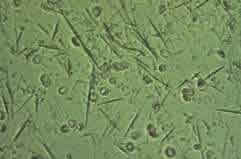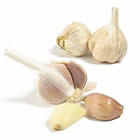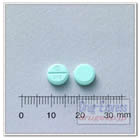![]() Print this Article
Print this Article ![]() Share with friends
Share with friends ![]() Bookmark to Favorites!
Bookmark to Favorites!
Uric Acid: Gout cause (disease)
"Uric acid as such has nothing to worry about, because it's produced naturally by our body, and it is later eliminated by the kidneys.
The problem comes when the level of uric acid is too high, causing a gout pain (higher than 0.08 g/l for a very painful gout)."
Article by: treatment for gout
![]()
![]()
![]()
![]()
![]() Rate this article (4864 votes)
Rate this article (4864 votes)
Uric acid, main cause of the gout disease
Uric acid comes from purine degradation (present in the food or in the cells of the body, they help to the functioning of the body). These purines lead to the formation of crystals.When the gout occurs, and so, the level of uric acid is not normal, this means either that your body produces too much uric acid, or your body can't remove uric acid normally.
In both cases, this uric acid that remains blocked in the body turns into small crystals of uric acid and remains stored everywhere. See the microscope photo:

You should know that an excess of uric acid in the blood (hyperuricemia) doesn't mean that the person will suffer gout pain. In fact, less than 20% of persons with a high concentration of uric acid ends up having gout.
Uric acid, why is it painful?
The problem of uric acid is the fact that these crystals often settle on joints which and then become logically painful: toe of the foot, legs and arms.
It's for this reason that gout is located in the family of arthritic diseases.
Sometimes gout crystals settle under the skin which causes deformities. The crystals also reach the kidneys (renal colic) which is quite serious.
What is uric acid of the body?
The body synthesizes normally uric acid when it degrades the cells and proteins, and releases it into the bloodstream. Uric acid typically remains dissolved in the blood, before to be eliminated by the kidney. If there is an excessive amount of uric acid in the blood (hyperuricemia), or if the kidneys cannot eliminate it quickly enough, crystals are created and accumulate in the joints, or even in the kidney and skin.Treatment of uric acid with garlic
Garlic combines both food and medicinal virtues. There is evidence that garlic dissolves uric acid crystals. It's recommended to consume every day 2 or 3 portions of garlic, ideally raw (salad for example).It's important to chewing well the garlic. Garlic also stimulates the heart, facilitates the circulation, purifies the blood, balances the blood pressure, and facilitates digestion.
Browse by Categories
About the Gout
Gout symptoms
Discover the main symptoms of gout on the body: fever, joint swelling, pain, and more.

Gout toe photos
Discover surprising photos of the gout toe of the foot and other deformations: ear, hand, feet...

Gout treatment
Discover a selection of the best treatments for gout: paracetamol, colchicine, etc...
Glossary about Gout
Uric acid
Substance that is the cause of gout (if rate greater than 0,08 g/l), which is derived from the degradation of purines...
[+] Learn more about uric acid

Purines
Substance located in food (beer, anchovies, etc) which in excess cause gout. They help our DNA...

Tophus or Uric acid crystals
Clusters of uric acid crystals that cause deformation on the joints and the under the skin... 

Full glossary about Gout [+] more
Allopurinol: A medical drug that is used to lower the levels of uric acid in the blood.
Drugs for gout: a medical drug that decreases the inflammation caused by gout.
Gouty arthropathy: Destruction of the joints due to tophus (cluster of uric acid crystals).
Kidney stones: « stones » mainly created in the urinary tract.
Colchicine: medical drug that relieves gout pain (also used in prevention) learn more about colchicine
Renal colic: very intense lower back pain due to "stones" that close up the urinary tract.
Hyperuricemia: uric acid rate in the blood above the normal rate (> 420 µmol/l or 70 mg/l).
Hypouricemia: medical treatment to reduce the level of uric acid in the body.
Infiltration: injection of a product directly into a joint.
Renal failure: progressive, important and definitive degeneration of the kidney function.
Psoriasis: chronic disease that affects first the skin.
 Popular:
Popular: 


